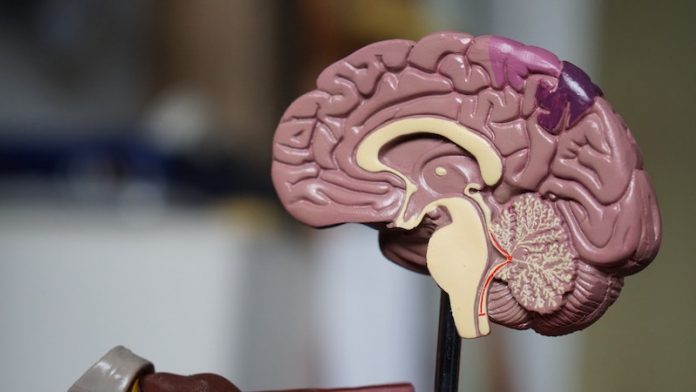
In a new study from The Pennsylvania State University, researchers found evidence of sleep-dependent low-frequency (<0.1 Hz) global brain activity in the clearance of Alzheimer’s disease-related toxin buildup.
This neuronal activity was more strongly linked with cerebrospinal fluid flow in healthy controls than higher-risk groups and patients, and the findings could serve as a potential imaging marker for clinicians in evaluating patients.
The development of Alzheimer’s disease is believed to be driven by the buildup of the toxic proteins amyloid-β and tau in the brain.
The brain’s glymphatic system plays a crucial role in clearing these toxins.
Previous work has shown a possible link between sleep-dependent brain activity and the glymphatic system.
In the study, the team examined 118 people in the Alzheimer’s Disease Neuroimaging Initiative project. They measured this brain activity and cerebrospinal fluid flow as well as looking at behavioral data.
The researchers found the strength of the connection between brain activity and cerebrospinal fluid flow was weaker in people at a higher risk or who had already developed Alzheimer’s disease.
Additionally, this weaker connection was linked to higher levels of amyloid-β and disease-related behavioral measures two years later.
This suggests an important role for sleep-dependent global brain activity in the clearance of brain waste, and its connection to cerebrospinal fluid flow could be helpful as a future marker for clinical evaluation.
The study findings linked the coupling between the resting-state global brain activity and cerebrospinal fluid flow to Alzheimer’s disease pathology.
The finding highlights the potential role of low-frequency (<0.1 Hz) resting-state neural and physiological dynamics in neurodegenerative diseases, presumably due to their sleep-dependent driving of cerebrospinal fluid flow to wash out brain toxins.
The team says future studies are warranted to fully understand the global brain activity and associated physiological modulations and their role in glymphatic clearance and neurodegenerative diseases.
If you care about Alzheimer’s disease, please read studies about this memory test could detect Alzheimer’s disease earlier and findings of this nutrient supplement may help fight Alzheimer’s.
For more information about Alzheimer’s disease prevention and treatment, please see recent studies about this stroke drug may also help prevent Alzheimer’s disease and results showing that bad sleep in older people may signal Alzheimer’s disease.
The study is published in PLOS Biology. One author of the study is Xiao Liu.
Copyright © 2021 Knowridge Science Report. All rights reserved.



